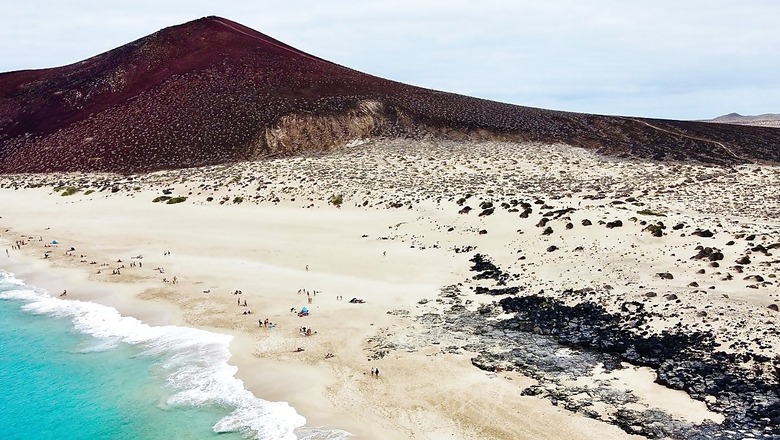
views
Tourists visiting the beaches in Lanzarote or Fuerteventura in the Canary Island must be careful to not pick up sand, stones and rocks from protected beaches. If found picking stones or rocks from the beach, they could be slapped with a hefty fine as it is illegal to do so since these beaches are protected.
The fines can range from £128 to £2,563 if tourists have been spotted taking these stones and rocks as souvenirs. The amount of money is decided based on the quantity of rocks or sand the person is attempting to remove from the beach.
Canary Islands is a group of seven islands and seven of them have very distinct personalities. While Tenerife is home to Spain’s tallest peak, Mount Teide, offering panoramic views, Lanzarote resembles a Martian landscape with stretches of sand ranging from golden to volcanic and is also home to the Los Montañas del Fuego or The Fire Mountains, formed due to volcanic eruptions.
It is also home to Fuerteventura where sand dunes form beaches which transition into the ocean.
News agencies from the islands, which are part of Spain, say the ecosystem is struggling with the ‘loss of natural material due to the actions of tourists’.
Lanzarote loses at least 100 kg natural material from its protected beaches each year and the famed ‘Popcorn’ beach, near Corralejo in the island of Fuerteventura also loses roughly the same amount of sand.
The removal of these materials damages the ecosystems and then leads to their endangerment, councillor Lola Garcia told UK-based news agency Metro.
Residents of Canary Islands said they feel they are at a breaking point due to the amount of tourists visiting every year. Tenerife reported a severe water shortage this year and officials there declared an emergency over a drought affecting the holiday hotspot and stepped in to reduce unnecessary water use.
For perspective, there are less than a million residents in the Canary Islands, compared to 5.6 million visitors in 2023. The islands also recorded its hottest February since 1961 following wildfires.

















Comments
0 comment